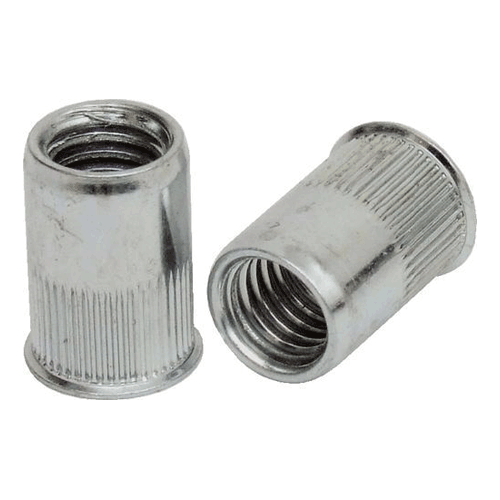Schedule a Call Back
Transforming Industrial Production: Khushboo Doshi
 Articles
Articles- Feb 21,25

The manufacturing landscape is undergoing a profound transformation, driven by technological innovations that are reshaping how we conceptualise, implement, and optimise production processes. This shift is no longer a matter of choice but a necessity for staying competitive in a dynamic global landscape. As we navigate this evolution, understanding the intersection of automation, sustainability, and digital integration becomes crucial for staying competitive in the global market.
Evolution of manufacturing processes
Traditionally, manufacturing relied on conventional setups with multiple stages and extensive human involvement, leading to longer lead times and increased chances of inaccuracies. However, modern manufacturing has undergone a seismic shift, embracing automation across the entire production chain—from metallurgy and component design to machining and final assembly.
This transition has significantly reduced manual intervention, enhancing both accuracy and consistency. Modern manufacturing setups are advancing toward paperless shop floors, which not only reduce production lead times but also improve efficiency and reliability. This evolution enables manufacturers to meet stringent global standards and exceed customer expectations.
Dawn of Industry 4.0 and smart factories
The rise of Industry 4.0 is driving the transformation of manufacturing into a digital ecosystem characterised by interconnected systems and real-time data analytics. Smart factories go beyond automation, integrating technologies that enable seamless communication between machines, predictive maintenance, and automatic optimisation of production parameters.
Paperless operations, where digital systems handle everything from design specifications to quality control, have become the norm. These advancements have achieved remarkable improvements in precision—up to 100 times better than conventional methods—while significantly reducing human errors and lead times.
Role of automation and robotics in manufacturing
Automation is redefining manufacturing processes by enhancing efficiency, reducing costs, and ensuring precision. Automated machinery integrated with advanced control systems ensures consistent quality and performance. Real-time monitoring features allow for immediate adjustments, optimising output and ensuring products meet industry demands for accuracy and reliability.
For instance, the use of precision-driven metrology tools like Coordinate Measuring Machines (CMM) enables manufacturers to verify geometric relationships and dimensions with exceptional accuracy. These innovations ensure seamless assembly of components while maintaining the highest quality standards. Looking ahead, integrating robotics into manufacturing processes will further enhance efficiency, reduce human intervention in repetitive tasks, and improve workplace safety.
Sustainable manufacturing and cybersecurity concerns
Sustainability has become a central focus in advanced manufacturing, with innovations directed toward reducing environmental impact while maintaining high performance. Modern production systems are being designed with energy efficiency in mind, incorporating features that optimise resource utilisation and minimise waste generation.
The industry is seeing a significant shift toward circular economy principles, with manufacturers developing technologies that support the processing of recycled materials and the production of sustainable packaging solutions. This evolution isn't just about environmental responsibility—it's becoming a crucial factor in maintaining competitiveness in a market increasingly driven by sustainability concerns.
The integration of connected devices in manufacturing has brought cybersecurity to the forefront. Cyberattacks and data breaches can disrupt operations and compromise sensitive information. To mitigate these risks, manufacturers must establish robust IT infrastructure and proactive cybersecurity protocols.
Maintaining trust with stakeholders and ensuring uninterrupted operations in a digitalised manufacturing environment requires a dedicated IT team and secure data management practices. Protecting intellectual property and operational data is vital for maintaining a competitive edge.
Trends and challenges
As manufacturing adopts advanced technologies, the workforce must evolve in tandem. Training programs in robotics, AI, and machine learning are essential to equip employees with the skills needed to operate sophisticated systems.
Globalisation presents opportunities and challenges. Manufacturers must balance the demand for higher production volumes with the need for quality assurance and cost competitiveness. The ‘China Plus One’ strategy exemplifies the shifting dynamics of global supply chains.
The successful integration of advanced technologies requires careful planning and investment. Manufacturers must align their technological upgrades with long-term strategic objectives while balancing costs and benefits.
The successful adoption of advanced manufacturing technologies requires a structured approach centred on four pillars:
1. Assessment and planning: Evaluate existing capabilities, identify areas for enhancement, and develop a roadmap with measurable goals.
2. Infrastructure development: Upgrade network capabilities, establish robust data collection mechanisms, and implement comprehensive security protocols.
3. Workforce development: Train employees, recruit skilled talent, and foster a culture of continuous learning and innovation.
4. Phased implementation: Test technologies with pilot projects before scaling successful implementations across the organisation.
India’s path to manufacturing excellence
India’s manufacturing sector is at a crossroads where embracing automation, robotics, and AI is essential to scaling operations and meeting global expectations. The shift in global supply chains, driven by multinational corporations, presents a unique opportunity for India to position itself as a key player. However, achieving this requires addressing productivity gaps, quality assurance, and cost competitiveness.
Advanced technologies play a pivotal role in addressing these challenges:
- Productivity enhancement: Automation and robotics streamline processes, reducing production times and increasing output.
- Consistency and quality assurance: Precision-driven systems ensure uniformity in production, minimising variations and defects.
- Error minimisation and cost reduction: Real-time monitoring and automated adjustments lower operational errors, leading to significant cost savings.
- Workplace safety: Robotics can perform hazardous tasks, ensuring a safer environment for workers.
This methodical approach ensures that technological investments deliver tangible business value while minimising risks.
Conclusion
Advanced manufacturing technologies signify a fundamental shift in industrial production. The integration of automation, robotics, AI, and digital tools has created systems that are more efficient, flexible, and sustainable than ever before.
For India and the global manufacturing sector, adopting these technologies is no longer optional—it is imperative for achieving growth, maintaining competitiveness, and meeting the challenges of an evolving market.
About the author:
Khushboo Doshi, the Managing Director at Rajoo Engineers Limited, joined the company in 2007, infusing her expertise as a second-generation entrepreneur. Initially appointed as the Head of Marketing and Communications, Doshi showcased cross-functional proficiency in marketing, corporate branding, PR, and communications strategy. Notably, her role as the Product Manager for Rajoo’s foam machinery business saw her introducing innovative concepts and fostering key stakeholder collaborations. Khushboo’s contributions were recognised with the esteemed award of Best Performing Female Entrepreneur at PLASTINDIA 2018, marking her significant impact and leadership within the Indian Plastics Industry.
Related Stories

Where Global Wire and Tube Innovation Comes Together
The world’s leading wire and tube trade fairs return to Düsseldorf, uniting global innovators to showcase AI-driven manufacturing, advanced materials and solutions shaping the future of industria..
Read more
Building the Future of Indian Manufacturing Through Automation
Make in India, industrial automation India, smart manufacturing, AI in manufacturing, Industry 5.0 India, manufacturing GDP growth, robotics and automation, Aatmanirbhar Bharat, Prateek Jain, Addver..
Read more
Why Batteries Trail Strategy in Humanoid Robot Development
Battery makers are racing ahead of robot OEMs in positioning humanoids as the next growth frontier. This press release examines developments from both perspectives and considers how deeper cross-ind..
Read moreRelated Products

Premium Quality Reduced Head
Advance Hydrau Components Pvt Ltd offers an array of rivet nut, reduced head.

Blended Learning
Eduquestindia Institute Pvt Ltd offers Blended Learning. There is often a debate around the thought as to which is a better approach to training and development for corporates. On the one hand, the Read more

Rapid Authoring
Eduquestindia Institute Pvt Ltd offers Rapid Authoring. The business environment in which the modern day corporates operate is quite intriguing. An increased competition over time has brought in ad Read more













